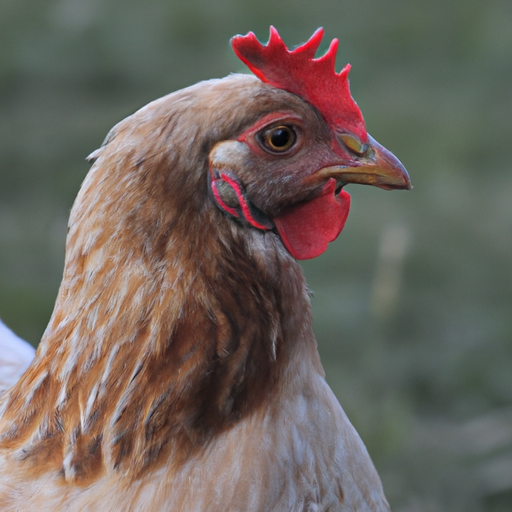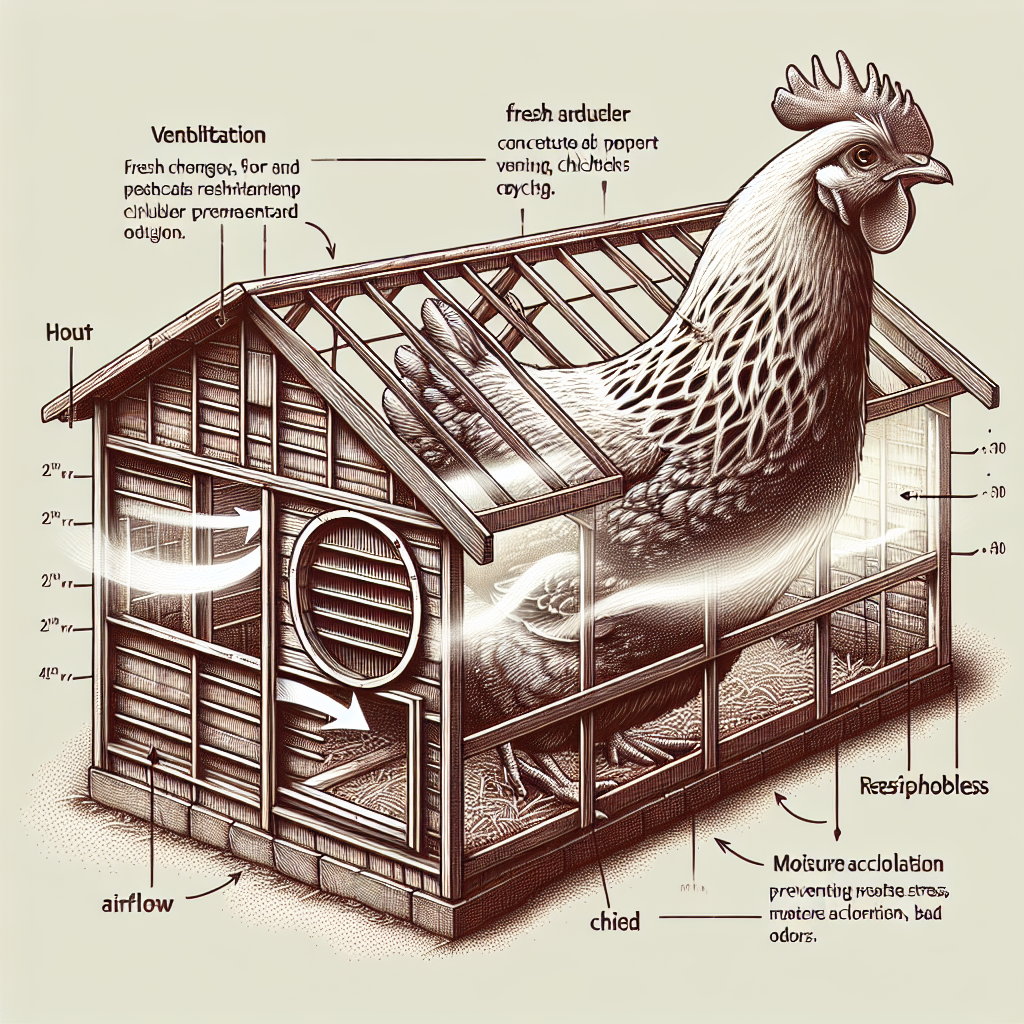Taking care of your chickens’ health is essential for their overall well-being and productivity. But how often should you conduct a thorough health examination on each chicken? This article aims to provide you with valuable insights into the frequency at which these examinations should be performed, ensuring that you give your feathered friends the attention they deserve. From signs to watch out for, to recommended time intervals, this article will guide you in establishing a proactive approach to keeping your chickens healthy and happy.
Key Factors to Consider
Age of the Chicken
The age of the chicken is an important factor to consider when it comes to their health. Young chickens, also known as chicks, are more susceptible to certain diseases, while older chickens may be more prone to age-related health issues. It is crucial to be aware of the specific health needs and vulnerabilities of chickens at different stages of life.
General Health Condition
The overall health condition of your chicken plays a significant role in determining their well-being. Healthy chickens are active, alert, and have bright eyes. On the other hand, chickens with poor health may exhibit signs of lethargy, weakness, or dull feathers. It is essential to regularly assess the general health condition of your chickens to detect any potential problems early.
Environmental Factors
The environment in which your chickens live can greatly impact their health. It is crucial to provide them with a clean and comfortable living space that is free from excessive heat, cold drafts, or dampness. Proper ventilation, adequate space, and protection from predators are all important factors to consider. Additionally, maintaining good hygiene and cleanliness within the coop is essential to prevent the spread of diseases amongst the flock.
Signs of Illness to Watch Out for
Abnormal Behavior
One of the most noticeable signs of illness in chickens is abnormal behavior. Pay close attention to any changes in their usual patterns and interactions. Signs such as lethargy, reduced socialization, or excessive pecking can indicate that something may be wrong. Chickens may also isolate themselves from the rest of the flock when they are unwell.
Changes in Appetite and Water Consumption
Monitoring your chickens’ food and water intake is another crucial aspect of their health. Any significant changes in appetite or water consumption should be noted, as they can indicate an underlying problem. A decrease in food intake or sudden increase in water consumption may be signs that your chickens are not feeling well.
Respiratory Issues
Respiratory issues in chickens can manifest as nasal discharge, sneezing, coughing, or wheezing. These symptoms may be indicative of respiratory diseases such as infectious bronchitis or avian influenza. Rapid or noisy breathing should also be a cause for concern and should be monitored closely.
Digestive Problems
Digestive problems in chickens can lead to issues such as diarrhea, constipation, or abnormal feces. Any changes in the color, consistency, or frequency of their droppings should be carefully observed. Digestive disorders can be caused by various factors, including bacterial infections, dietary changes, or parasites.
Feather Appearance
The condition of your chickens’ feathers can provide valuable insight into their health. Healthy chickens should have shiny, smooth feathers that are free from bald patches, parasites, or abnormal molting patterns. Any changes in feather appearance, such as ruffled feathers, feather loss, or abnormal pigmentation, should be investigated further.
Egg Production
For chickens that are of egg-laying age, their egg production can serve as a valuable indicator of their overall health. A sudden decrease in egg production or the production of abnormal eggs (such as soft-shelled or misshapen eggs) may be a sign of underlying health issues. Monitoring your chickens’ egg production regularly can help you spot potential problems in their reproductive system.
Regular Health Examinations
Weekly Visual Inspections
Performing weekly visual inspections of your chickens is an essential part of their health care routine. Take the time to observe each chicken individually, looking for any signs of illness or abnormality. Pay attention to their appearance, behavior, and interactions with other flock members. Visual inspections allow you to spot any changes early on and take appropriate action.
Monthly Physical Examinations
In addition to weekly visual inspections, monthly physical examinations are recommended for a more thorough assessment of your chickens’ health. Physical examinations involve a hands-on approach, allowing you to assess their body condition, check for any abnormalities, and feel for any signs of illness or injury. This examination is particularly important in older chickens, as age-related health issues can be better detected through physical assessment.
Health Exam Techniques
Physical Examination
During a physical examination, it is important to handle each chicken gently and carefully. Start by visually inspecting their body condition, checking for any signs of emaciation, weight loss, or abnormal swelling. Feel their breastbone and abdominal area for any irregularities or abnormalities. Take note of any discomfort or pain they may exhibit during the examination.
Checking Vital Signs
Monitoring the vital signs of your chickens is crucial to assess their overall health. Check their temperature using a rectal thermometer, ensuring it falls within the normal range of 105-107°F (40-42°C). Additionally, monitor their heart rate and breathing rate to ensure they are within the normal range for chickens. Any deviations from these ranges may indicate an underlying health issue.
Feather and Skin Condition Examination
Inspecting the feathers and skin of your chickens can provide valuable insight into their health. Look for any signs of parasites such as mites or lice, which can cause itching, feather loss, or skin irritation. Check for any wounds, bruises, or other abnormalities on their skin. Healthy skin should be smooth, free from lesions, and have a normal coloration.
Beak, Comb, and Wattle Examination
The beak, comb, and wattles of chickens can also provide important clues about their health. A pale or bluish coloration of these areas may indicate poor blood circulation or anemia. Swollen or discolored wattles can be a sign of infection or illness. Inspect their beak for any abnormalities or signs of injury, such as cracks or deformities.
Leg and Foot Examination
The legs and feet of chickens are prone to various health issues, such as bumblefoot or leg mites. Carefully inspect each leg and foot, looking for any signs of swelling, redness, or wounds. Check their nails for length and condition, ensuring they are not too long or curling excessively. Any limping or difficulty in walking should also be noted.
Abdominal Palpation
Palpating the abdomen of your chickens can help detect any abnormalities or abnormalities. Gently press on their abdomen, feeling for any lumps, swelling, or masses. Take note of any discomfort or pain they exhibit during the palpation. Abdominal palpation can be particularly helpful in detecting issues related to digestion, reproductive organs, or egg-binding.
Common Health Issues in Chickens
Respiratory Diseases
Respiratory diseases are common in chickens and can be caused by various pathogens, including bacteria, viruses, or fungi. Diseases such as infectious bronchitis or avian influenza can lead to respiratory problems, including coughing, sneezing, or nasal discharge. Proper biosecurity measures, vaccination, and good ventilation can help prevent respiratory diseases in your flock.
Parasites and Pests
Chickens are susceptible to a range of parasites, including mites, lice, ticks, and worms. These pests can cause itching, feather loss, anemia, or digestive issues. Regular inspection and appropriate treatment are essential to prevent the spread of parasites within the flock. Maintaining clean living conditions, practicing good biosecurity measures, and administering deworming medications can help protect your chickens from parasites.
Digestive Disorders
Digestive disorders in chickens can be caused by various factors, including bacterial or viral infections, dietary changes, or poor sanitation. Symptoms may include diarrhea, constipation, or abnormal droppings. Providing a balanced and nutritious diet, maintaining cleanliness within the coop, and avoiding sudden dietary changes can help prevent digestive disorders in your chickens.
Reproductive System Problems
Issues with the reproductive system can affect both egg-laying hens and roosters. Egg binding, where the eggs get stuck in the oviduct, can be a potentially life-threatening condition for hens. Roosters may experience testicular tumors or fertility problems. Proper nutrition, appropriate nesting boxes, and regular monitoring of egg production can help identify and address reproductive system problems in chickens.
Molting
Molting is a natural process in which chickens shed their old feathers and grow new ones. However, abnormal or prolonged molting can sometimes indicate underlying health issues, such as nutritional deficiencies or stress. Providing a well-balanced diet with sufficient protein and vitamins can help support healthy molting in chickens.
Injuries
Chickens can be prone to injuries, such as cuts, abrasions, or fractures. It is important to promptly attend to any wounds to prevent infections or further complications. Ensure that the coop and outdoor areas are free from sharp objects or potential hazards that could cause injuries. Regularly inspecting the flock and promptly addressing any injuries can help maintain their overall health and well-being.
When to Seek Veterinary Assistance
Persistent Symptoms
If your chicken is exhibiting persistent symptoms that do not improve or worsen over time, it may be necessary to seek veterinary assistance. Persistent respiratory issues, digestive problems, or abnormalities that last for more than a few days should not be ignored. A veterinarian will be able to perform a thorough examination, diagnose the underlying issue, and provide appropriate treatment.
Sudden or Severe Changes
Any sudden or severe changes in your chicken’s behavior, appetite, or appearance should be taken seriously. Rapid onset of symptoms, such as sudden weight loss, extreme lethargy, or difficulty breathing, may require immediate veterinary attention. It is better to err on the side of caution and consult a veterinarian if you have concerns about your chicken’s health.
Multiple Chickens Affected
If multiple chickens in your flock are exhibiting similar symptoms or signs of illness, it may indicate a more widespread issue. This could be due to a contagious disease that requires professional intervention. Quarantining affected chickens and seeking veterinary assistance can help prevent the spread of diseases within your flock.
Preventive Measures for Chicken Health
Maintaining Clean Living Conditions
Proper hygiene and cleanliness within the chicken coop are crucial for maintaining good health. Regularly clean and disinfect the sleeping areas, nesting boxes, and feeding/watering containers. Remove any accumulated droppings or wet bedding promptly to prevent the growth of harmful bacteria or parasites. Ample ventilation and fresh air circulation are also important for preventing the buildup of ammonia or excessive humidity.
Proper Nutrition and Hydration
Providing your chickens with a balanced and nutritious diet is essential for their overall health and well-being. Ensure they have access to clean and fresh food daily, consisting of a combination of high-quality chicken feed, grains, greens, and appropriate supplements. Fresh water should also be available at all times. Proper nutrition and hydration play a vital role in supporting their immune system and preventing various health issues.
Biosecurity Practices
Implementing biosecurity practices can help safeguard your flock against infectious diseases. Limiting access to your coop, washing hands before and after handling chickens, and avoiding contact with other poultry or animals can help minimize the risk of introducing pathogens. Quarantine any new chickens before introducing them to the existing flock to prevent the spread of diseases. Regularly monitor your chickens for signs of illness and seek veterinary assistance as needed.
Conclusion
Caring for the health of your chickens requires careful observation, regular examinations, and prompt action when needed. By considering key factors such as age, general health condition, and environmental factors, you can provide a conducive and healthy living environment for your flock. Being vigilant for signs of illness, conducting regular health examinations, and implementing preventive measures can help ensure the well-being and longevity of your chickens. Remember that seeking veterinary assistance when necessary is essential for proper diagnosis and treatment of any health issues that may arise. With proper care and attention, your chickens can lead healthy and happy lives.




